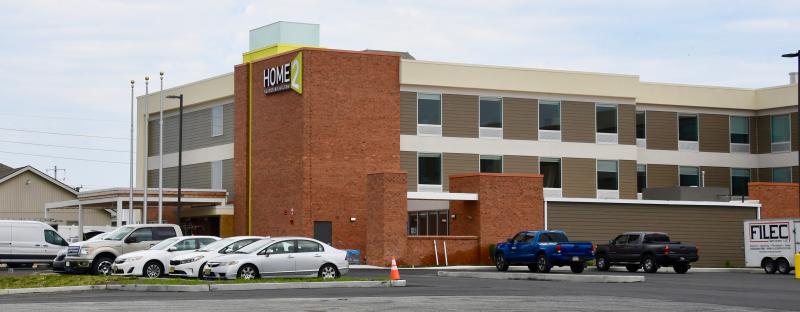Sussex council passes no-frills budget
Sussex County is launching into the a new fiscal year with a no-frills budget that maintains services while limiting spending in the shadows of the COVID-19 pandemic.
Sussex County Council, following a June 23 public hearing via teleconference, voted unanimously to approve the $157.8 million budget for fiscal year 2021, which begins July 1.
The general operating budget at $66 million is down nearly $16 million from the previous year, and the capital budget – general fund and water and sewer projects – at $41 million is down $15 million.
To offset the projected revenue downturn, officials trimmed departmental spending, canceled new major capital projects and capped county grants programs to allow time for the local economy to recover, all while maintaining core services such as public safety, wastewater and libraries.
“To say this is a bare-bones budget is an understatement. The COVID-19 crisis forced the county, just as it did the state and federal governments, to reevaluate funding and spending priorities, and plan accordingly,” said County Administrator Todd Lawson. “This budget reflects the new realities in a post-pandemic world.”
However, as the new fiscal year progresses, county staff will review revenues, and could act on proposed projects and initiatives included as prioritized supplements in the budget.
“If the pandemic continues to level off or subside through the summer and into the fall, and revenues begin to pick up again as businesses and construction resume, then we can supplement this budget to fund projects and initiatives later in the year,” Lawson said. “This budget allows the county to take a wait-and-see approach, all while maintaining our day-to-day services the public depends on.”
Building-related revenue, which drives the county's economic engine, is expected to rebound by the end of the fiscal year, said Sussex County Finance Director Gina Jennings.
Thanks to a late 2019 and early 2020 boom, building-related revenue stands at near-record levels. Realty transfer taxes – the county's largest single source of revenue – stand at a projected $35.7 million, closing in on levels experienced in 2005 and 2006. Other building-related revenue, projected at $13.2 million, will also be near record levels.
However, near-record building-related revenues may not last in fiscal year 2020-21 as the county grapples with the economic uncertainties associated with the COVID-19 emergency. The proposed budget is down 15 percent from the current year, with projected revenues down 65 percent to 85 percent of their current levels.
Building-related revenue is budgeted at $10.3 million and realty transfer tax is budgeted at $22.8 million. The county anticipates collecting $14.8 million in property taxes. Realty transfer and property taxes make up about half of the county's revenue.
Although it's not currently being collected, the budget includes $1 million in a new county lodging tax.
Jennings said the baseline spending plan can be modified if quarterly revenue outlooks improve.
If revenues derived from realty transfer tax, building permits, building inspections and document filings in the Recorder of Deeds Office exceed a given quarter’s budget by at least $1 million, other departmental expenses, purchases, and projects/initiatives can be restored through prioritized budget amendments, she said.
Copies of the budget, as well as the budget presentation, can be downloaded from the county website at sussexcountyde.gov/county-budget.
Budget highlights
$3.4 million for 22 supplemental Delaware State Police troopers
$5.1 million for other public safety grants
$2.2 million for work at Coastal Delaware Airport
$2 million for work at Delaware Coastal Business Park
$1.7 million to preserve open space and farmland
$1 million in engineering costs for a new public safety complex to expand Sussex County Emergency Operations Center to accommodate the county emergency medical services administrative offices and training facilities
$750,000 to continue efforts to expand broadband internet in rural areas
$588,000 for eight new employees at the county dispatch center, who are needed to handle the growing workload due to taking Seaford 911 calls after its center closed
$139,000 for an assistant county engineer
Key expenses
$16.8 million – paramedics
$16 million – grants-in-aid
$4.4 million – emergency preparedness
$2.6 million – library operations
$2.6 million – community development
Key revenue
$22.5 million – realty transfer taxes
$14.8 million – property taxes
$3.5 million – Recorder of Deeds Office
$2 million – building permits and zoning fees
$1.8 million – Sheriff's Office
$1.7 million – library taxes
$1.6 million – inspection fees
$1 million – lodging taxes
No increases in property taxes or sewer charges






















































